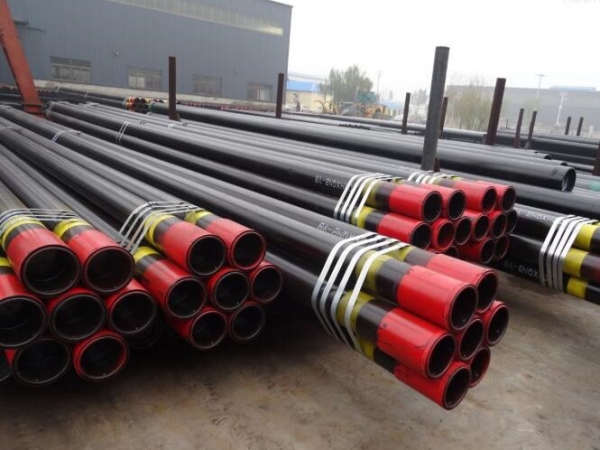Oil casing refers to the steel pipe used to support the wall of oil and gas wells during drilling and after completion. The selection of steel grade for oil casing is critical, and it must meet certain acceptance standards to ensure the integrity and safety of the well. The American Petroleum Institute (API) sets the standards for oil casing steel grades and acceptance criteria. Below are some common oil casing steel grades and the corresponding API standards.

H40:
API Standard: API 5CT
Description: H40 is a relatively low-strength steel grade with specified minimum yield strength of 40,000 psi. It is suitable for shallow wells or wells with low pressure and large deformation.
J55:
API Standard: API 5CT
Description: J55 is a common steel grade with a minimum yield strength of 55,000 psi. It is widely used in shallow to medium-depth wells and is often the standard grade for most casing applications.
K55:
API Standard: API 5CT
Description: K55 has the same yield strength as J55 but has a higher tensile strength. It is commonly used in deeper wells or wells with higher pressure.
N80:
API Standard: API 5CT
Description: N80 is a higher-strength steel grade with a minimum yield strength of 80,000 psi. It is suitable for deeper wells and more challenging downhole environments.
L80:
API Standard: API 5CT
Description: L80 is a medium-carbon steel grade with a higher yield and tensile strength compared to N80. It is often used in medium-depth wells and has good resistance to sulfide stress cracking.
C90:
API Standard: API 5CT
Description: C90 is a higher-strength steel grade with a minimum yield strength of 90,000 psi. It is suitable for wells with higher pressure and more demanding downhole conditions.
P110:
API Standard: API 5CT
Description: P110 is a high-strength steel grade with a minimum yield strength of 110,000 psi. It is used in deep and high-pressure wells and is known for its excellent strength and toughness.
These steel grades are subject to specific testing and acceptance criteria outlined in the API 5CT standard, including dimensional and mechanical properties, as well as requirements for non-destructive testing, chemical composition, and hardness. The acceptance standards are designed to ensure the quality and performance of the casing in various well conditions.